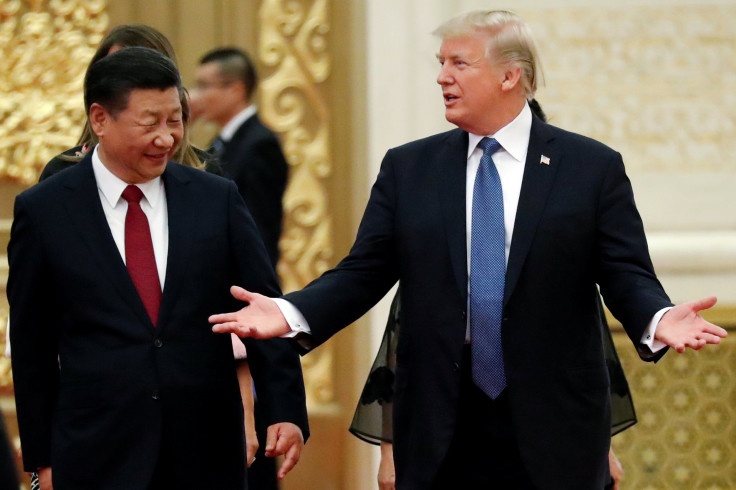Trump Urges A New 'Structure' For US-China Trade Deal

President Donald Trump has signaled a new direction in United States-China trade talks and said any deal would need "a different structure," fueling uncertainty over current negotiations.
In an early Wednesday morning post on Twitter, Trump said the current track appeared "too hard to get done" and cited difficulties such as verification, but he gave no other details about what he or his administration was looking for amid ongoing negotiations.
Representatives for the White House did not respond to a request for more information about the president's statement.
U.S. stocks slipped after his comments, but ended Wednesday up after release of the minutes of the last Federal Reserve meeting, which indicated a gradual approach to interest rates hikes.
On Thursday, the Trump comments on China trade talks and the launch of a U.S. national security probe into U.S. auto imports dented shares of Asian automakers.
Trump's statement comes amid the negotiations between the world's two largest economies after potential tariffs on both sides raised fears of a trade war, even as some tensions have eased over signs of some possible progress.
Both sides claimed victory on Monday and pledged to continue talking after last week's round in Washington produced pledges that China would import more American energy and agricultural commodities so as to trim the $335 billion annual U.S. goods and services trade deficit with China, although there were no specifics.
"China unswervingly defends its core interests, and did not make any promise on cutting its trade surplus with the U.S. by a specific figure," Gao Feng, spokesman at the Chinese commerce ministry, said Thursday.
But both sides are willing to strengthen cooperation in agricultural, energy, medical, high-tech products as well as the financial sector, Gao told reporters at a regular briefing in Beijing.
U.S. Commerce Secretary Wilbur Ross was expected to visit China next week to help finalize an agreement. U.S. Treasury Secretary Steven Mnuchin told CNBC on Monday that Ross aimed to negotiate "a framework" that could then turn into "binding agreements ... between companies."
"China welcomes the U.S. in sending senior trade delegations to China soon, and hopes China and the U.S. can work together to actively implement the measures specified in the joint statement according to the understanding both sides achieved recently in D.C.," Gao said.
Trump on Tuesday, however, told reporters he was not pleased with recent talks, calling them "a start."
China hopes both sides will move to push bilateral trade cooperation to achieve "positive" and "realistic" goals, the Chinese commerce ministry spokesman said.
Any firm deal is likely to take a long time, according to most observers, and U.S. officials have threatened to return to tariffs, which prompted the current standoff, if needed.
Trump threatened to impose tariffs on up to $150 billion of Chinese goods.
Trade talks have also been clouded by separate negotiations over the nuclear weapons program in North Korea, which counts China as its sole major ally.
Trump is seeking to win a major deal with Pyongyang to denuclearize and is eyeing a June 12 summit with North Korean leader Kim Jong Un. On Tuesday, however, Trump raised doubts the meeting would take place as planned, and suggested Kim’s recent meetings with Chinese President Xi Jinping had influenced Kim to harden his stance.
© Copyright Thomson Reuters 2024. All rights reserved.




















